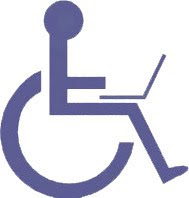
Meeting Reminder: Our February 19th meeting is one that you will not want to miss! We will be having two excellent,well-known, and respected doctors from the Georgia Health Sciences University (formally called the Medical College of Georgia -
MCG). We know that you will find this meeting very informative, not only about the DBS procedure and process, but also about Parkinson's disease. (DBS is "Deep Brain Stimulation" - a type of surgical management of Parkinson's disease.)
Date: Sunday, February 19, 2012
Topic: "What You Need To Know About The DBS Process" -- From determining who is a DBS candidate - the evaluation process - the surgery/surgeries - and the on-going treatment after surgery.
Time: 3:00 pm - 4:30 pm With time after the meeting for additional discussion and socialization
Where: Lexington Medical Park Auditorium, 2720 Sunset Boulevard, West Columbia, SC 29169
Speakers:
Doctor Cole Giller, Director of Stereotactic and Functional Neurosurgery; Clinical
Professor, Department of Neurosurgery
Doctor Shyamal Mehta, Assistant Professor of Neurology and Staff Member of the Movement DisorderClinic
Some of the Coming Events of Interest - Visit our "2012 MEETING & EVENTS CALENDAR" web page which is updated often with information [including events listed below] about new events, seminars, symposiums, and of course our monthly meeting at http://www.columbiaparkinsonsupportgroup.or/meet_calendar_2012.htm
March 13, 2012 - The 2012 SC Assistive Technology Expo
March 18, 2012 - Columbia PD Support Group Meeting - Topic: Are you prepared? Russ Bell will be discussing what you need to do to prepare for emergencies and natural disasters (i.e., hurricanes, tornadoes, evacuations). While the topic will be applicable to everyone, there will be focus on special preparation for seniors, those with disabilities, and those who are ill and need special care.
April 2012 - PARKINSON'S AWARENESS MONTH - Stay Tuned! - We have special events planned for this month
A Special Note: One of our members would like to share information and experiences with other caregivers of Parkinson's patients with dementia to. If you wish to connect with this member, please send name, phone number, and email to Dottie Gantt contact@columbiaparkinsonsupportgroup.org
To Contact Us:
Carol Baker, Vice President & Program Chair - Email: caroltbaker@bellsouth.net - Telephone 803-781-6193
Dottie Gantt, President - Email: contact@columbiaparkinsonsupportgroup.org - Telephone: 803-604-0061
We look forward to seeing you at the February 19, 2012 meeting.
Dottie M. Gantt, President Columbia Parkinson's Support Group
Email: contact@columbiaparkinsonsupportgroup.org - Telephone 803-604-0061
Website: http://www.columbiaparkinsonsupportgroup.org/
“Every PD patient is unique and everything about his or her disease is specific to him or her and ONLY to him or her. PD has only one time - NOW, the
present. The previous hours do not forecast how you are going to feel. The only thing that is predictable about this disease is its unpredictability.”
~~Written by Rick Kramer and Margaret Tuchman~~
To access the Center for Disability Resources Library and its materials, please click this link

























